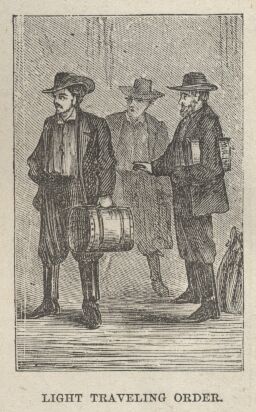
By eight o’clock everything was ready, and we were on the other side of the river. We jumped into the stage, the driver cracked his whip, and we bowled away and left “the States” behind us. It was a superb summer morning, and all the landscape was brilliant with sunshine. There was a freshness and breeziness, too, and an exhilarating sense of emancipation from all sorts of cares and responsibilities, that almost made us feel that the years we had spent in the close, hot city, toiling and slaving, had been wasted and thrown away. We were spinning along through Kansas, and in the course of an hour and a half we were fairly abroad on the great Plains. Just here the land was rolling—a grand sweep of regular elevations and depressions as far as the eye could reach—like the stately heave and swell of the ocean’s bosom after a storm. And everywhere were cornfields, accenting with squares of deeper green, this limitless expanse of grassy land. But presently this sea upon dry ground was to lose its “rolling” character and stretch away for seven hundred miles as level as a floor!
Roughing It
From Orion's Journal: July 26.—Left St. Joseph. Started on the plains about ten miles out. The plains here are simply prairie.
See Burton on Bleeding Kansas:
Landing in Bleeding Kansas—she still bleeds—we fell at once into “Emigration Road,” a great thoroughfare, broad and well worn as a European turnpike or a Roman military route, and undoubtedly the best and the longest natural highway in the world.